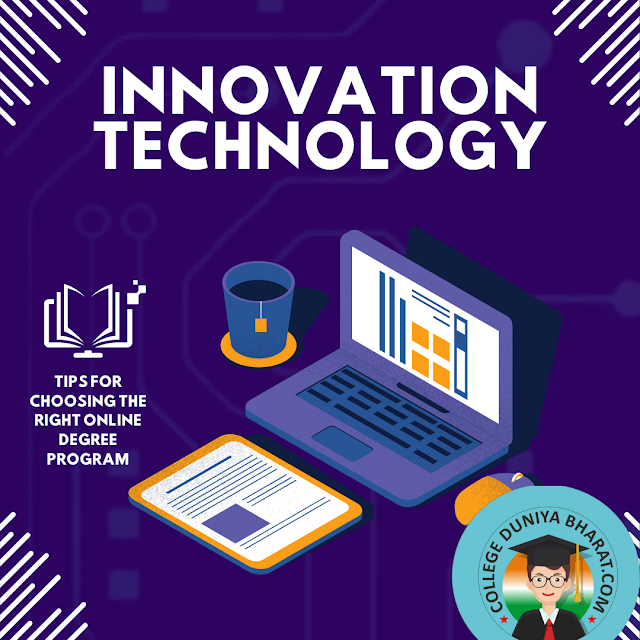Breaking Myths About Online Degrees: Are They Really Worth It?
In today’s fast-paced digital era, online degrees have emerged as a viable alternative to traditional on-campus education. Yet, despite their growing popularity, many misconceptions still surround online learning. Are online degrees as credible as traditional ones? Do employers value them? Can they provide the same level of education and opportunities? Let’s dive into these myths and uncover the truth about online degrees.
Myth 1: Online Degrees Are Not as Credible as Traditional Degrees
The Reality: The credibility of an online degree largely depends on the institution offering it. Many prestigious universities, including Harvard, MIT, and Stanford, now offer online programs that hold the same accreditation and standards as their on-campus counterparts.
- Accreditation Matters: Accredited online programs meet rigorous academic standards and are recognized by employers and educational institutions worldwide.
- Same Curriculum: In most cases, the curriculum for online and on-campus programs is identical, ensuring the quality of education remains consistent.
- Employer Perception: According to a survey by Northeastern University, 61% of HR leaders view online degrees as equal to traditional degrees when earned from a reputable institution.
Myth 2: Online Degrees Are Easier Than Traditional Degrees
The Reality: Online degrees are not an easy way out; they require discipline, time management, and self-motivation.
- Rigorous Coursework: Online programs often involve extensive reading, assignments, and participation in virtual discussions.
- Time Commitment: Students must dedicate significant hours to studying, just as they would in a traditional program.
- Self-Discipline: Without the structure of a physical classroom, students must stay organized and proactive to succeed.
Myth 3: Employers Don’t Value Online Degrees
The Reality: Employers are increasingly recognizing the value of online education, especially from accredited institutions.
- Focus on Skills: Employers prioritize the skills and knowledge a candidate brings to the table, regardless of how they were acquired.
- Reputable Institutions: Degrees from well-known universities offering online programs carry significant weight.
- Growing Acceptance: A study by CareerBuilder found that 83% of employers consider an online degree from a reputable institution to be as credible as a traditional degree.
Myth 4: Online Learning Lacks Interaction and Networking Opportunities
The Reality: Modern online programs are designed to foster interaction and build networks.
- Virtual Classrooms: Tools like Zoom, Microsoft Teams, and discussion forums enable real-time interaction with instructors and peers.
- Group Projects: Collaborative assignments encourage teamwork and networking.
- Global Reach: Online programs often attract students from around the world, providing a unique opportunity to build a diverse network.
Myth 5: Online Degrees Are Only for Tech-Savvy Individuals
The Reality: Online learning platforms are user-friendly and designed for students of all technical skill levels.
- Intuitive Interfaces: Most platforms offer easy navigation and tutorials to help students get started.
- Technical Support: Institutions provide round-the-clock technical assistance to address any issues.
- Learning Resources: Video tutorials, guides, and FAQs ensure that even beginners can adapt quickly.
Myth 6: Online Degrees Are Too Expensive
The Reality: Online degrees can be more affordable than traditional programs.
- Lower Tuition Fees: Many online programs have reduced tuition costs compared to on-campus options.
- No Relocation Costs: Students can save on housing, transportation, and other living expenses.
- Flexible Payment Plans: Many institutions offer installment plans or financial aid to make education more accessible.
Myth 7: Online Degrees Don’t Offer Practical Experience
The Reality: Many online programs include practical components to ensure hands-on learning.
- Internships and Projects: Institutions often collaborate with organizations to provide virtual internships or project-based learning.
- Simulation Tools: Advanced technologies like virtual labs and simulations replicate real-world scenarios.
- Hybrid Options: Some programs combine online coursework with short-term on-campus residencies for practical training.
Myth 8: Online Degrees Are Limited to Certain Fields
The Reality: Online education spans a wide range of disciplines, from business and healthcare to engineering and the arts.
- Diverse Programs: Students can pursue degrees in fields like data science, psychology, nursing, and even fine arts.
- Specialized Certifications: Many institutions offer niche certifications and micro-credentials alongside degree programs.
- Continuous Expansion: As technology advances, more fields are becoming accessible through online learning.
Benefits of Online Degrees
Now that we’ve debunked some common myths, let’s highlight the benefits of pursuing an online degree:
- Flexibility: Study at your own pace and schedule, making it ideal for working professionals and parents.
- Global Access: Learn from top institutions without geographical constraints.
- Cost-Effective: Save on commuting, housing, and other expenses associated with on-campus learning.
- Skill Development: Online learning hones skills like time management, self-discipline, and digital literacy.
- Diverse Perspectives: Interact with peers from different cultural and professional backgrounds.
Tips for Choosing the Right Online Degree Program
To maximize the value of your online degree, consider the following factors:
- Accreditation: Ensure the program is accredited by a recognized body.
- Reputation: Research the institution’s credibility and rankings.
- Curriculum: Review the course structure and ensure it aligns with your career goals.
- Support Services: Look for programs that offer academic advising, career counseling, and technical support.
- Flexibility: Choose a program that fits your schedule and learning style.
Conclusion
Online degrees are not just a passing trend; they represent the future of education. By breaking the myths surrounding online learning, we can appreciate its potential to provide high-quality, accessible, and flexible education. Whether you’re a working professional looking to upskill, a parent balancing responsibilities, or an international student seeking global opportunities, online degrees offer a pathway to achieve your goals. With careful research and the right mindset, an online degree can be a worthwhile investment in your future.
"Thanks for visiting and exploring the transformative world of innovative education!"


